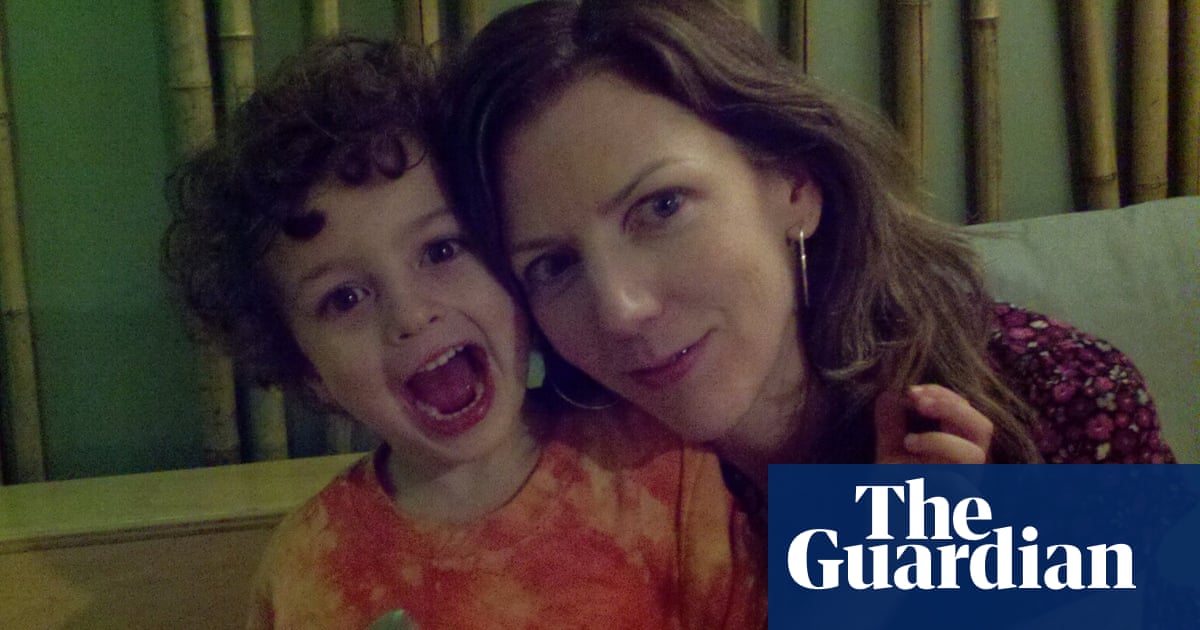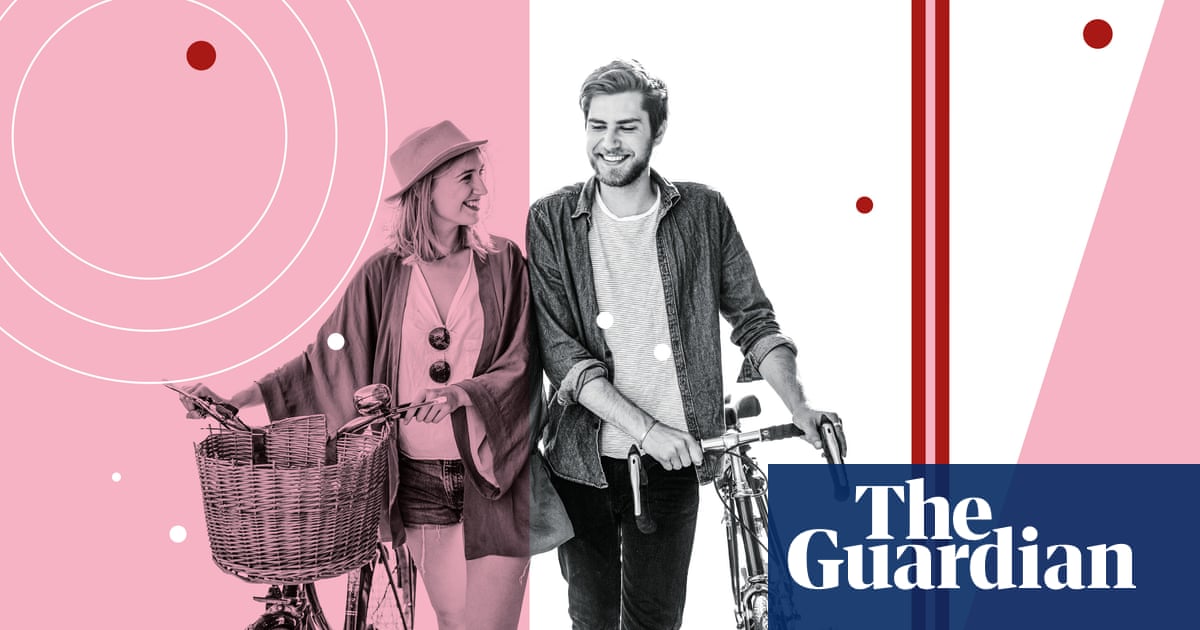
ny time I try to make sense of my aversion to motherhood and my utter glee over having escaped it, my mind immediately turns to the “mother-daughter day” my mom took me out of school for in the spring of 1975, a year before she and my father split up.
Our midweek adventure came as a complete surprise to me, although I was happy for the day off from fourth grade, as any nine-year-old would be. It was going to be a special day for just us, my mother promised. We were headed to the Metropolitan Museum of Art in Manhattan, and to lunch at a fancy restaurant.
She’d buried the lede, though, neglecting to warn me about the first stop on the drive from our house on Long Island: a red-brick three-storey office building in Lynbrook, where her therapist practiced.
“This is Mrs Abramson,” my mother said, directing me to sit on the couch beside her. “I come here every week to talk to her about my feelings.”
Mrs Abramson was a matronly older woman in a navy polyester dress, with a bouffant helmet of hair dyed flat brown. She focused her eyes on me intently and smiled artificially. I was so confused – was I just along for the ride on one of my mother’s boring adult errands? Or did I have a role here? Was I in trouble for something?
After an awkward pause, Mrs Abramson nodded to my mother, who then turned to me. “I know you really loved Nanny,” she said, referring to my maternal grandmother, my favorite person in the world, who’d died of breast cancer three years before, “but she wasn’t a very nice mother to me. She wasn’t warm to me the way she was to you. She was cold and selfish.”
My mother launched into a laundry list of grievances. She recounted instances in which my grandmother left her and my uncle alone for whole days at a time when they were still small, so she could take long drives by herself, despite my mother’s tearful pleas for her not to leave. She said Nanny was emotionally handicapped, not “mother material”, because her own mother had died when my grandmother was just three, in 1919, at the end of the influenza epidemic. After my grandmother’s mother passed, her father couldn’t handle raising a toddler by himself. He had a nervous breakdown and sent my grandmother away to live with an aunt. My mother insisted that this series of tragic events rendered Nanny incapable of being nurturing.
I listened intently, but the information did not compute. No one showed me more love than Nanny had. Before she died, I would frequently sleep over on Saturday nights. It was the highlight of my week. Kindred creative spirits, Nanny and I would draw and paint together. We’d watch Shirley Temple movies and sing along to Animal Crackers in My Soup. Sunday mornings, we’d watch Wonderama and dance together, pretending we were right there on the set.
I wasn’t yet old enough to know that grandparent-child relationships can be much easier than parent-child relationships, or to realize that I had come along just in time to serve as a welcome distraction from the cancer that was killing Nanny, which might have led her to be warmer to me than she’d been to my mother.
Before I had a chance to fully consider the alternate version of Nanny my mother presented in her therapist’s office, she moved on to an even more stunning reveal: She and my father were considering separating. She still loved my father very much, she insisted, but marriage and parenthood were very hard.
That last bit was less surprising. I had witnessed my mother struggling with motherhood. When I was very small, she seemed to relish spending time with me – playing dress-up and make-believe, mixing up homemade Play-Doh on a snow day. Now she often seemed put-upon when having to do the lion’s share of parenting for two daughters, as she did. When there were too many kid-related errands, too many doctor and vet appointments, too many helpless beings (my sister, me, our dog) tugging at her, she would break down and cry, calling out to no one in particular: “When is it my turn?!”
Later, as an adult trying to understand what my mother’s experience, I would be able to factor in that she had married when she was just 19, practically a child still, and had her first kid at 25. She’d never really had her turn.
When my mother was done talking, her therapist nodded to her again, and she stood. “Now you can talk to Mrs Abramson about your feelings,” she said, exiting the room and leaving me alone with her shrink.
I felt blindsided. I had no idea what I was supposed to say, let alone feel. I was afraid to utter anything that might upset or betray my mom. So I just sat there, silent.
***
Attending my mother’s highly choreographed therapy session nearly 45 years ago presented me with so much stunning information at once, all of it difficult for my child’s mind to grasp. It ushered in many thorny questions I was too afraid to ask, leaving me to obsess over them on my own for years to come.
Like, how did you know if you were “mother material”? What if you weren’t, and you didn’t find out until after you had kids, and started neglecting them? My mother often said my personality was similar to Nanny’s – that I was not only “artsy” like her, but also “aloof” and “selfish”. Many years later I would wrestle with these descriptions in my own therapy sessions, along with the realization that my mother had inappropriately burdened me, too young, with her emotional needs – something my father was guilty of, as well, after my parents divorced.
Sometimes I wonder whether having the tables turned on me like that so early in life – having been “parentalized” to use 1970s psychobabble – plus frequently being tasked with watching my little sister, made me feel spent as a care-taker. Did it contribute to my lack of desire for kids? My sense that they are nothing but exhausting?
I arrived very late to owning my lack of maternal desire. I was so anxious about the stigma associated with not wanting kids – so afraid of confronting further evidence that I was “selfish”, or garnering the pity and shame that had been foisted upon my older cousins who didn’t have them – that between the end of my first marriage at 26 and meeting my current husband at 38, I avoided even really asking myself whether I did want them.
Now and then, though, I would secretly entertain my biggest fears: if I were to make babies, might I feel trapped, as my mother seemed to? Would I perpetuate a family legacy of daughters feeling insufficiently mothered – as I had, as my mother had, and as her mother had – passing down to future generations the effects of trauma that began with my great-grandmother’s untimely death? Would I wind up burdening and traumatizing my children with my emotional needs in a parent-child role reversal, as both my parents did?
Then, ten years ago, as I was approaching 44, I underwent a hysterectomy that not only provided relief from a painful condition called adenomyosis; it also helped me come to terms with my lack of interest in motherhood. Ironically, my husband and I had been pursuing fertility treatment right up until my diagnosis. When we learned I needed an operation that would effectively obliterate the possibility of child-bearing, I was relieved. My husband was, too.
A part of me still wonders if I am the way I am because I’m “damaged”, or “selfish”, or because I’m just not naturally inclined toward motherhood. If forgoing it altogether had been presented to me as a valid option growing up, would I have simply opted out based on my personal preferences, and who I am? Or is who I am impossible to separate from the influences of my upbringing?
I might never figure it out. All I know is that at 54, I’m happy living a childless life, in which I feel unencumbered and free – and in which it’s pretty much always my turn.












